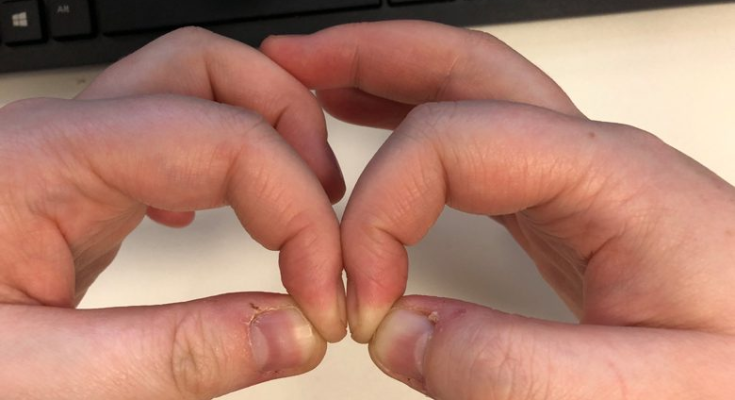What to Do If You Notice Finger Clubbing
If your test indicates possible finger clubbing, don’t panic. Although it’s understandable to be concerned, it’s vital to take proactive steps to handle the situation.
- Schedule a Doctor’s Appointment: The first step is to visit your primary care physician. They can conduct a more comprehensive examination and recommend additional tests like chest X-rays, CT scans, or blood work to either rule out or confirm potential health issues.
- Monitor Other Symptoms: Keep track of any other unusual symptoms you might be experiencing, such as fatigue, coughing up blood, or difficulty breathing. Sharing this information with your doctor will assist them in understanding your overall health better.
- Avoid Self-Diagnosis: While the finger clubbing test is useful, it’s not a definitive diagnostic tool. Let medical professionals evaluate your condition and provide an accurate diagnosis.
- Adopt a Healthy Lifestyle: Whether or not the test suggests potential problems, maintaining a healthy lifestyle is essential for preventing lung cancer and other diseases. Stay away from smoking, limit exposure to environmental toxins, and make regular exercise and a balanced diet a priority.
Why Early Detection Is So Important
Lung cancer is often referred to as the “silent killer” because its symptoms can remain hidden until the disease has progressed. By the time noticeable symptoms like chronic coughing or chest pain show up, the cancer may have already spread, making treatment more difficult.
This is why early detection tools like the finger clubbing test are so valuable. Although they don’t provide a definite diagnosis, they act as a reminder to seek professional advice and catch potential issues before they become more serious. Early intervention greatly increases the likelihood of successful treatment and recovery.

